CIRCULAR ECONOMY
Sustainable solutions for a new generation of self-starters
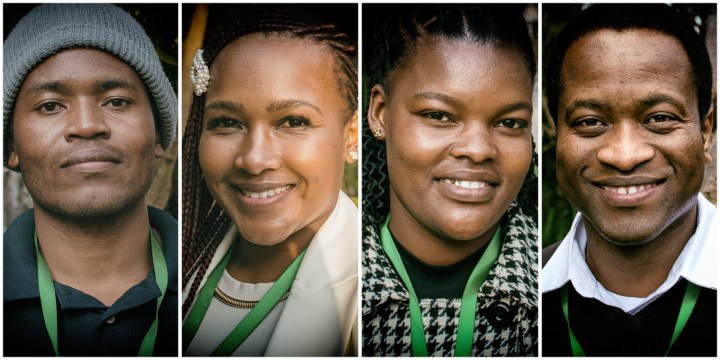
Young entrepreneurs are coming up with sustainable and innovative businesses that are creating job opportunities and boosting the circular economy in South Africa. And they have no intention of leaving their communities behind.
‘I can’t sit back and complain and ask someone else to make the change. The people who need to take action are sitting at home… that’s me. I need to take action,” said Lerato Mvubelo, one of the recipients of Minister of Forestry, Fisheries and the Environment, Barbara Creecy’s Driving For Change (DFC) Youth Challenge.
The initiative, led by Creecy’s department in partnership with the International Labour Organisation, provides 16 young entrepreneurs or SMMEs [small, medium and micro enterprises] the chance to advance their green business enterprise development through business support, mentorship and training in the green and circular economy.
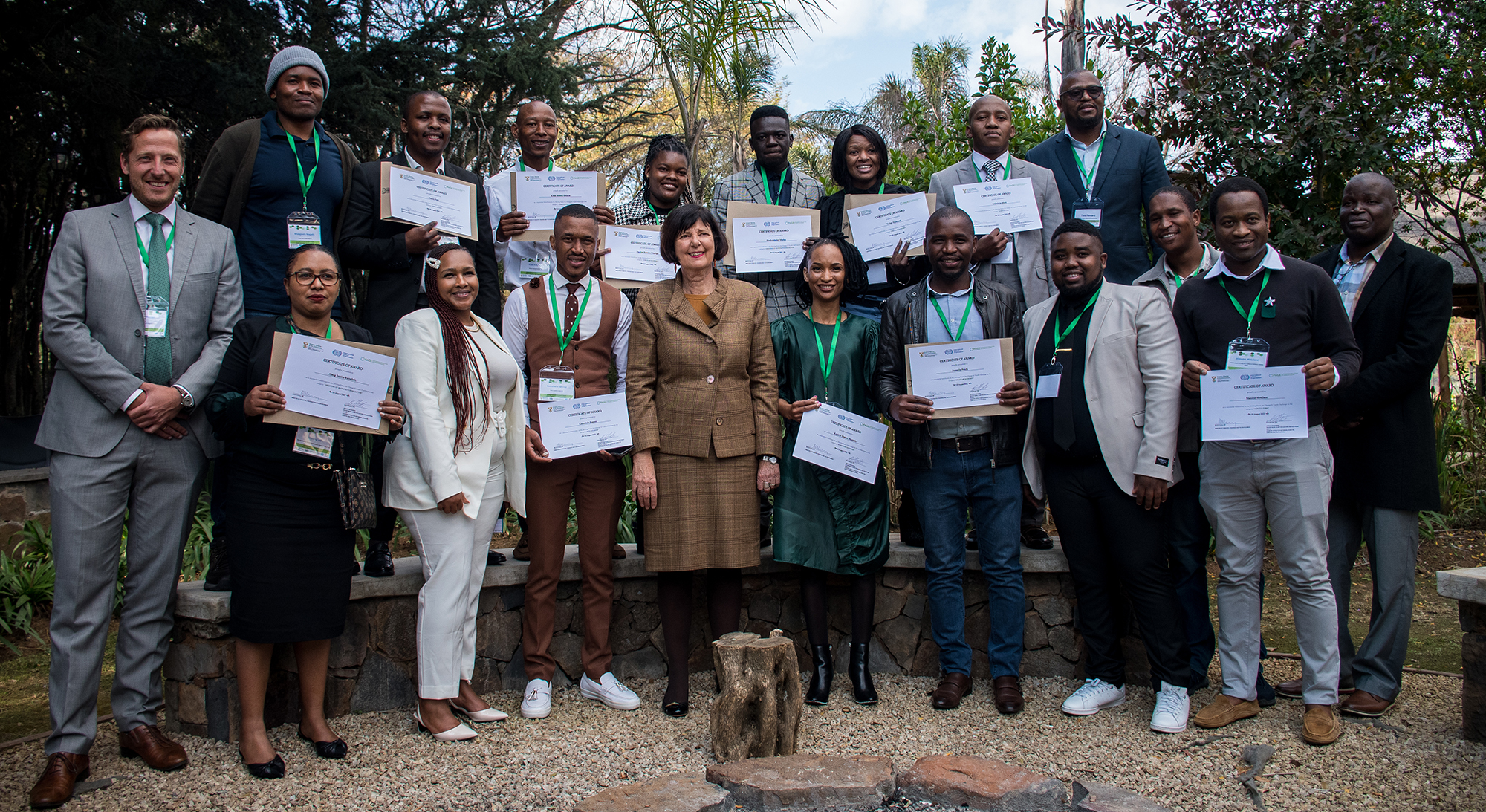
Minister of Forestry, Fisheries and the Environment, Barbara Creecy, with the 16 winners of the Driving Force for Change II Youth Challenge, during the award ceremony at Birchwood Conference Centre in Boksburg on 2 August 2022. (Photo: Julia Evans)
“Green economy and circular economy solutions are regarded worldwide as being best practice. And what we’re trying to do here in South Africa is to introduce those solutions into our economy,” said Creecy at the DFC awards ceremony on Tuesday.
Creecy said this programme is addressing the threats of climate change, biodiversity loss and environmental pollution.
“What this programme aims to do is to work with young people to find sustainable solutions to what are otherwise overwhelming problems,” said Creecy, adding that while the climate crisis is often depressing, green and circular solutions provided a wealth of opportunities to the economy.
A circular economy is a closed-loop economic system of production and consumption whereby, unlike the linear waste model, it maximises the circulation of materials and minimises waste.
Here are four of the 16 beneficiaries of the challenge, and their innovative, sustainable projects:
Lerato Mvubelo
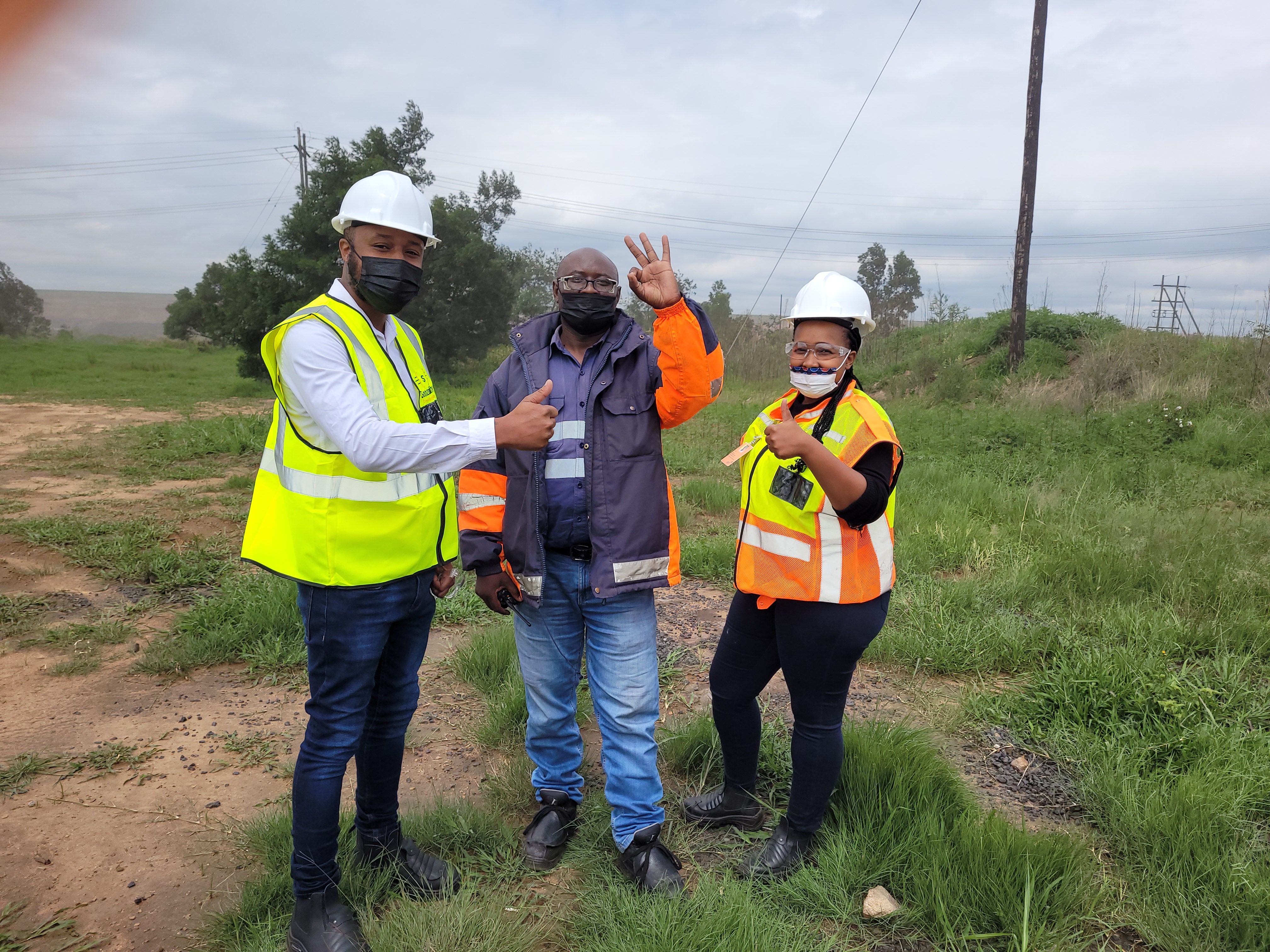
Lerato Mvubelo (right) with her site supervisors on a coal mine in Ogies, Mpumalanga that her team is rehabilitating. (Photo: Lerato Mvubelo)
“When a mining company comes into the community, there are job opportunities… but what happens when the mining is done? What happens to the people who worked on the mine? How do they earn a living?”
These are questions that spurred Lerato Mvubelo to start her company, Impophoma Mining Solutions, which is initiating a project to rehabilitate and restore the land from abandoned coal mines in Emalahleni, Mpumalanga.
To allow communities to benefit from the land after coal mines are shut down, Mvubelo’s company is using hemp farming to restore abandoned coal sites.
Mvubelo explained that hemp has many environmental benefits — it doesn’t require a lot of water, absorbs carbon dioxide from the atmosphere and puts nitrogen back into the soil, which strengthens the soil and any crops planted thereafter.
“The idea behind it is that in the same way the community would have been able to benefit from the land, be it from agriculture or from biodiversity, you need to, as far as possible, restore it to that,” Mvubelo told Daily Maverick, explaining the concept of mine restoration.
“Currently, that is not the case… it can’t be used by the community.”
The hemp that is grown can be turned into clothing, biodegradable plastics and eco-friendly sanitary pads — which further provides communities with job opportunities and diversifies the business opportunity landscape.
“Currently, everyone wants to work at the mine,” said Mvubelo, who grew up in a mining community and whose first job was at a mine.
“Everyone wants to supply services to the mine. So this is important in that it facilitates the just transition.”
Mvubelo hopes that when the mines in her community inevitably close, there will be alternative opportunities for those who lost their jobs.
Matome Motalane
Matome Motalane is from Limpopo. His agro-processing and agri-tech company, Mangau Animal Feeds, manufactures commercial livestock feed using agricultural raw materials and recycled waste (such as leaves and stems).
They minimise waste by using the by-products of the manufacturing process as fertiliser and only producing feed based on demand.
In addition to offering solutions for livestock farming, Motalane has set up community outreach programmes and disease outbreak alerts, accessible through a mobile app, with the aim of empowering farming communities in rural Polokwane with knowledge that can improve their farming skills and help them to understand the environment.
“The main aim of establishing my company is to ensure that there’s sufficient food security, because we’ve got an increasing human and animal population which requires more food,” Motalane told Daily Maverick.
“At the same time, I’m looking at producing feeds that will also help to address disease outbreaks and [ways] we can be environmentally cautious about waste.”
Coming from the disadvantaged communities of Mogaladi in Ga-Mothapo, Motalane is passionate about uplifting rural communities in Limpopo.
“I realised that more than 80% of rural communities do not have access to information,” said Motalane.
“Some of them cannot improve their farming practices… they are not environmentally conscious about certain things,” he said, mentioning green economy solutions.
Pauline Mankge
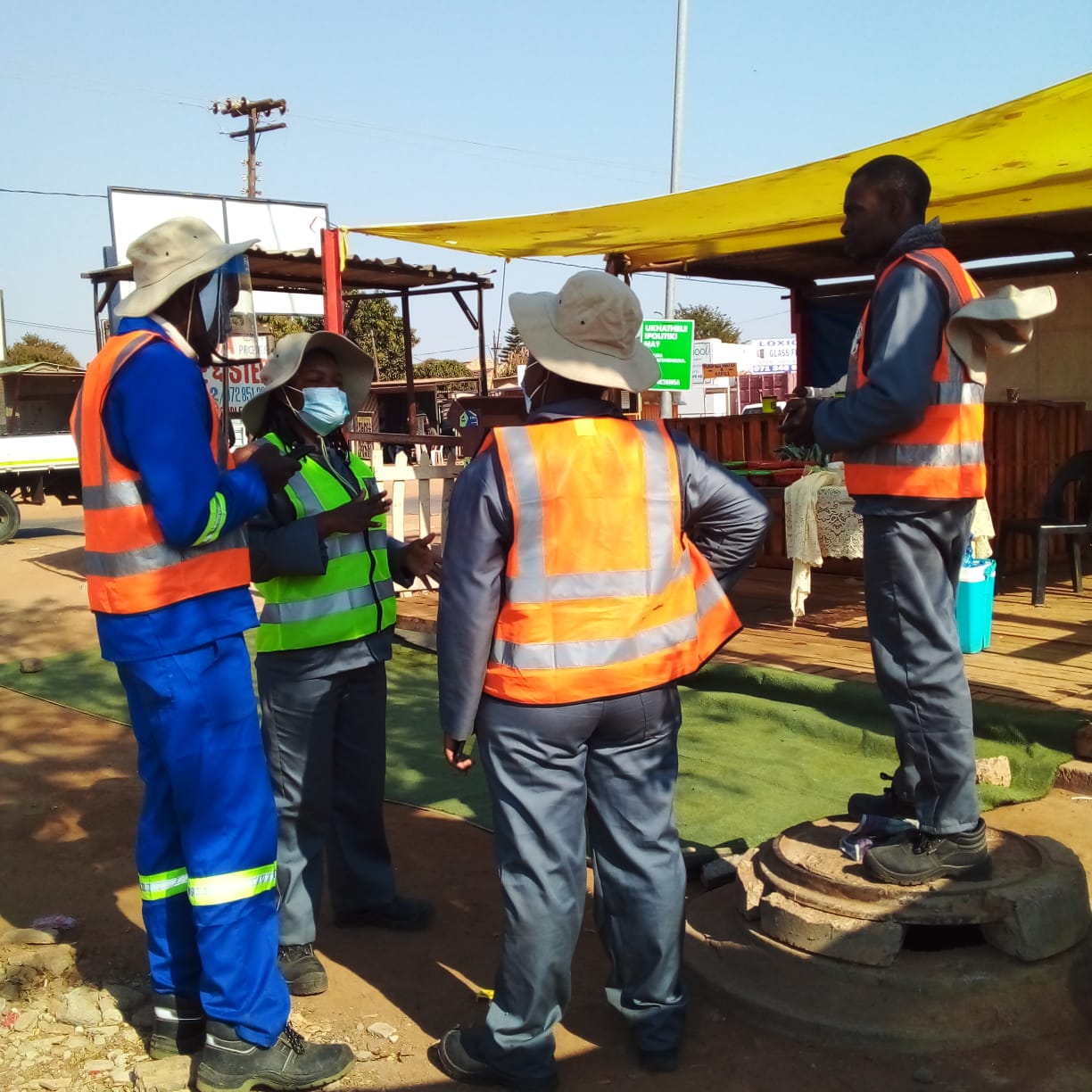
Pauline Mankge with her team that picks up waste from illegal dump sites in Hammanskraal to sell it to recyclers. (Photo: Pauline Mankge)
Pauline Mankge, a beneficiary in the circular economy category, started her company, Yaau Holdings, which collects recycling materials from illegal dumping sites in Hammanskraal and sells them to recyclers.
“Picking up waste… people see trash. I see money for myself, and also it’s good for the environment,” said Mankge.
Along with monetising waste and contributing to the circular economy, they are cleaning up their community and tackling the issue of waste management and environmental pollution.
“As much as we are getting material, we are also cleaning the environment and in most areas, we create parks for children,” said Mankge, explaining that there are illegal dumping sites next to school yards.
Mankge said in her community of Hammanskraal there are a lot of illegal dumping sites, and though there is municipal refuse collection, it is inconsistent.
“They come once a week, sometimes they just come after three months… Most times you hear they are on strike and then people just dump everywhere.”
Visit Daily Maverick’s home page for more news, analysis and investigations
The company collects recyclable items such as plastic, tins, paper and glass, which they stockpile and sell to manufacturers like S M Plastics in Hammanskraal, which makes plastic chairs and tables.
“As our aim is to clean the streets of Hammanskraal, we saw… a gap for us to fill, in also creating jobs for others,” explained Mankge, who has six employees and plans to expand. She is working with a mentor who has industry expertise as part of the DFC initiative.
“My company is all about job creation. We’re not going to stop at recycling and waste management.”
Mankge added, “Hammanskraal is well known for negative things. So we want it back on the map, doing good things for our country.”
Along with job creation, Mankge is passionate about incentivising the youth, and wants to see Hammanskraal produce responsible young people.
“I hope to motivate others and start something, without waiting for the government to give us funds.”
Khangwelo Magada
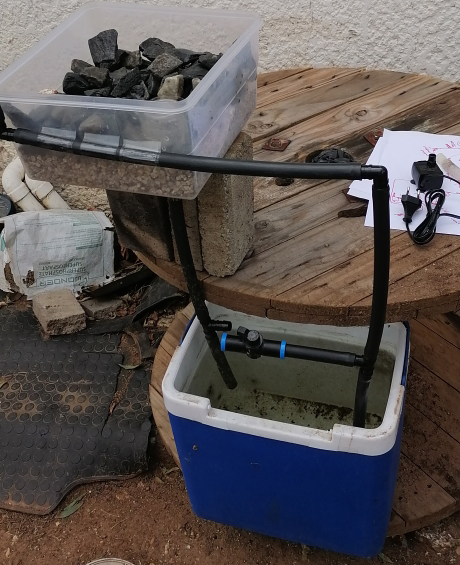
Khangwelo Magada’s small-scale aquaponic model that filters wastewater from fish pond to use as organic fertiliser for food crops. (Photo: Khangwelo Magada)
Khangwelo Magada, a beneficiary in the innovation category, is involved in aquaponics, a farming process that combines aquaculture (raising fish in a controlled environment) and hydroponics (growing plants in a soil-less environment).
“So we utilise both ecosystems, working together to simultaneously create the nutrients and ultimately remove the nutrients in the form of growing their beautiful, leafy, green leaves,” explained Magada, whose company is called Urban Rush Studios.
Aquaponics technology is based on the concept of recycling water and nutrients. Plants grown in soil-less water are fertilised with nitrogen from fish excretions. When the plants extract the nutrients they leave clean water for fish cultures.
“This system creates a closed loop; a re-circulatory, aquaculture system,” explained Magada, who comes from a family that works in agriculture, but learnt how to build the system from watching YouTube videos.
“So aquaponics really allows you to grow almost any type of vegetables or fruit… you just have to adapt your system to accommodate those certain types of crops.”
Magada explained that the benefit of this system is that the food lasts longer due to it not having to be sprayed with pesticides and being fertilised with organic, non-toxic fertiliser. The technology is used to help farmers reduce wastage of agricultural produce in transit.
This innovative technology doesn’t have to be expensive — the last small-scale aquaponic device Magada made in his backyard cost R680 (excluding the fish), because he used recycling materials.
“The whole thing is to turn community people into entrepreneurs. They can actually put it in their community and get money,” said Magada, who is from Mahikeng in North West.
Magada said their mission was to create local farms everywhere in South Africa and bring jobs to communities that really needed them.
“Mahikeng is rife with crime… and I actually understand where they’re coming from… So why don’t we go to the community and teach them how to empower themselves so that they don’t have to resort to such measures?” DM/OBP









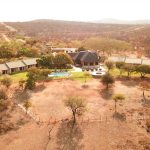









 Become an Insider
Become an Insider
Comments - Please login in order to comment.